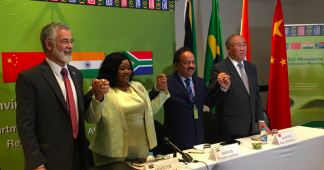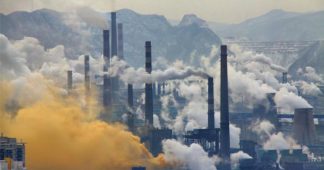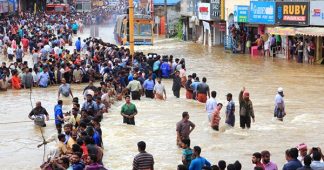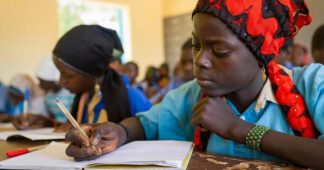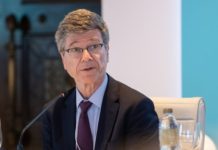SPEECH BY MR JACQUES CHIRAC
PRESIDENT OF THE FRENCH REPUBLIC
TO THE PLENARY SESSION
OF THE WORLD SUMMIT ON SUSTAINABLE DEVELOPMENT
JOHANNESBURG
MONDAY 2 SEPTEMBER 2002
Mr President,
Ladies and Gentlemen,
Our house is burning down and we’re blind to it. Nature, mutilated and overexploited, can no longer regenerate and we refuse to admit it. Humanity is suffering. It is suffering from poor development, in both the North and the South, and we stand indifferent. The earth and humankind are in danger and we are all responsible.
It is time to open our eyes. Alarms are sounding across all the continents. Europe is beset by natural disasters and health crises. The American economy, with its often-ravenous appetite for natural resources, seems to be hit by a crisis of confidence in the way it is managed. Latin America is again shaken by a financial, and hence social, crisis. In Asia, rising pollution evidenced by the brown cloud is spreading and threatening to poison an entire continent. Africa is plagued by conflicts, AIDS, desertification and famine. Some island countries are seeing their very existence threatened by climate warming.
We cannot say that we did not know! Let us make sure that the 21st century does not become, for future generations, the century of humanity’s crime against life itself.
*
This entails our collective responsibility. First and foremost the responsibility of the developed countries, who are frontrunners in terms of history, power and their consumption levels. If the whole of humanity were to behave like the Northern countries, it would take two more planets to satisfy our needs.
Yet this is also the responsibility of the developing countries. It makes no sense to repudiate long-term constraints in the name of emergency. These countries have to admit that there is no other solution for them than to invent a less polluting growth model.
Ten years after Rio, we have no reason to celebrate. The implementation of Agenda 21 is a long, hard road. Awareness of our failure to act should lead us, here in Johannesburg, to conclude the global alliance for sustainable development.
An alliance that will lead the developed countries to embark on the ecological revolution, the revolution of production and consumption models. An alliance that will lead them to take the necessary action to attain solidarity with the poor countries. An alliance that France and the European Union are ready and willing to undertake.
An alliance by means of which the developing world will embark on the road to good governance and clean development.
*
We have before us five priority areas of action.
First, climate change. Human activity started it. It threatens us with a planetary tragedy. Now is no longer the time for an “every country for itself” attitude. A solemn call should go out from Johannesburg to all the countries in the world, especially the leading industrialised countries, to ratify and apply the Kyoto Protocol. Climate warming is still reversible. Heavy would be the responsibility of those who refused to fight it.
The second area for action is the eradication of poverty. In the era of globalisation, the persistence of mass poverty is outrageous and an aberration. Let us apply the decisions of Doha and Monterrey. Let us increase development assistance to reach the target of 0.7% of GDP in ten years. Let us find new sources of financing. For example, by means of a solidarity levy on the wealth created by globalisation.
The third area is diversity. Biological diversity and cultural diversity, both humanity’s common heritage, are threatened. The answer is to assert the right to have diversity and adopt legal commitments on ethics.
The fourth area concerns the production and consumption models. We need to work with the business world to develop systems that are sparing of natural resources and produce little waste and pollution. The invention of sustainable development is a fundamental advance and we should put scientific and technological progress to work for it, respecting the precautionary principle. France will propose to its G8 partners at the Evian Summit next June that they adopt an initiative to step up scientific and technological research to further sustainable development.
The fifth area is global governance to humanise and control globalisation. It is time to acknowledge that there are global public goods that we should manage together. It is time to assert and insist upon the greater interest of humanity over and above that of each country.
To ensure the cohesion of international action, we need, as I said in Monterrey, an Economic and Social Security Council.
To better manage the environment and ensure compliance with the Rio principles, we need a World Environmental Organisation.
To check that Agenda 21 and the Johannesburg Action Plan are applied, France proposes that the Commission on Sustainable Development be vested with the task of assessment by peers. France is willing to be the first to be assessed in this way.
*
Mr President,
Compared with the history of life on earth, the history of humankind has barely started. And yet it is already, by man’s own doing, threatening nature and hence endangering itself. Can humanity, at the forefront of evolution, become an enemy of life itself?
Man first appeared in Africa several million years ago. Fragile and unarmed, he used his intelligence to spread over the entire planet and impose his law on it. The time has come for humankind, in all its cultures and civilisations, to build a new relationship with nature, a relationship of respect and harmony, and hence to learn to control its power and appetite.
Today, in Johannesburg, humanity has a rendezvous with destiny. What better place than South Africa, a country which stands as a symbol in its triumphant struggle against apartheid, to take this new step forward in the human epic.
